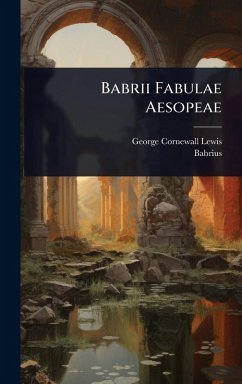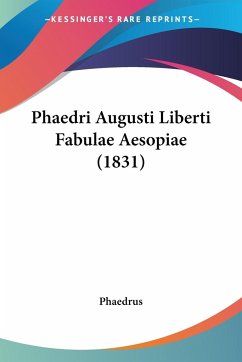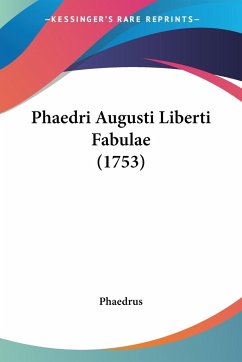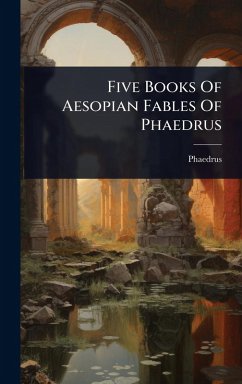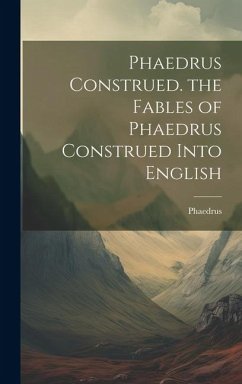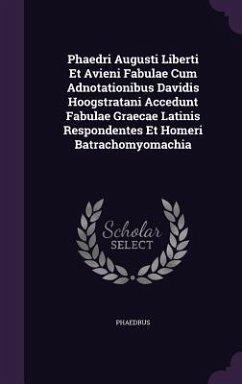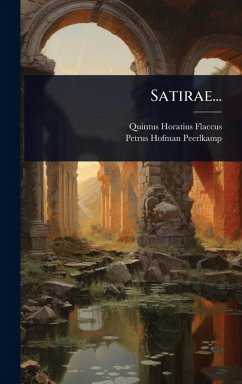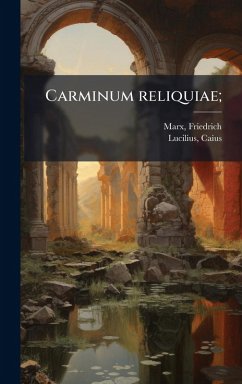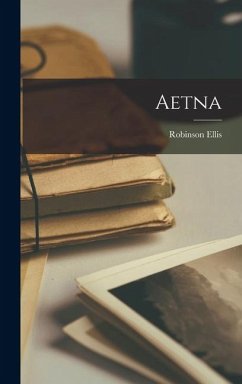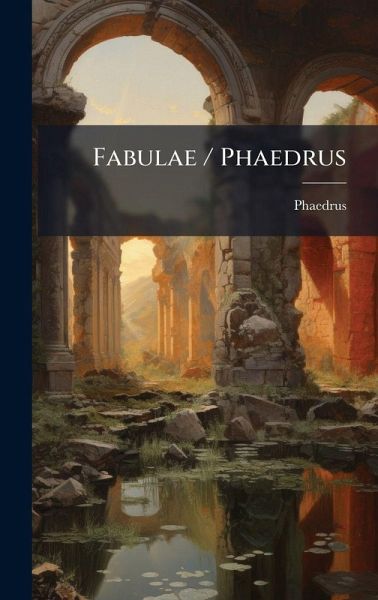
Fabulae / Phaedrus
Versandkostenfrei!
Versandfertig in über 4 Wochen
28,99 €
inkl. MwSt.

PAYBACK Punkte
14 °P sammeln!
"Fabulae" is a collection of fables written in Latin by Phaedrus, a 1st-century AD Roman fabulist. These fables are largely based on the earlier Greek fables of Aesop, but Phaedrus adapted them and presented them in Latin verse. His work is significant for its clear and concise style, as well as its moral lessons conveyed through animal characters and human interactions. The fables often reflect social and political commentary relevant to Roman society during Phaedrus's time. The collection offers insights into the cultural values and ethical teachings of the classical world. "Fabulae" remains...
"Fabulae" is a collection of fables written in Latin by Phaedrus, a 1st-century AD Roman fabulist. These fables are largely based on the earlier Greek fables of Aesop, but Phaedrus adapted them and presented them in Latin verse. His work is significant for its clear and concise style, as well as its moral lessons conveyed through animal characters and human interactions. The fables often reflect social and political commentary relevant to Roman society during Phaedrus's time. The collection offers insights into the cultural values and ethical teachings of the classical world. "Fabulae" remains relevant for students of Latin, those interested in classical literature, and anyone who appreciates the timeless wisdom found in simple yet profound stories. This work has been selected by scholars as being culturally important, and is part of the knowledge base of civilization as we know it. This work was reproduced from the original artifact, and remains as true to the original work as possible. Therefore, you will see the original copyright references, library stamps (as most of these works have been housed in our most important libraries around the world), and other notations in the work. This work is in the public domain in the United States of America, and possibly other nations. Within the United States, you may freely copy and distribute this work, as no entity (individual or corporate) has a copyright on the body of the work. As a reproduction of a historical artifact, this work may contain missing or blurred pages, poor pictures, errant marks, etc. Scholars believe, and we concur, that this work is important enough to be preserved, reproduced, and made generally available to the public. We appreciate your support of the preservation process, and thank you for being an important part of keeping this knowledge alive and relevant.



